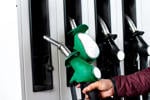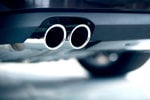BMW stole a march on almost every other car manufacturer when it introduced Efficient-Dynamics in 2007.
Its methods of improving fuel consumption and reducing CO2 emissions through careful engine management, as well as recuperating previously lost energy when coasting or braking, gave its cars a clear lead.
Although it wasn’t the first to market with stop-start technology, which saves fuel when idling by cutting the engine, it was the first to use it over a wide range of models.
And since then many other car manufacturers have introduced their own fuel-saving technology and made up lost ground.
But winning the Fleet News Award for Green Manufacturer of the Year in 2010 depends on more than adding lower-CO2 models to its range.
For BMW’s head of corporate sales, Steve Chater, the win was a result of actions taken right across its business that put the company a step ahead of other car manufacturers.
“It’s very high on the agenda for blue-chip companies, and even in small to medium-size businesses,” he said.
“I think the suggestion in the economic downturn that com-panies are not as focused on ‘green’ elements as other areas is not what we’re seeing.
“There is an increasing focus on environmental performance when looking at tenders for new business and we have to demonstrate our credibility, not only in our product range but also in our whole strategy across the company.
“Customers expect us to demonstrate how we can support the aims and ambitions of their businesses to
be greener.”
BMW Group has been the top automotive company in the Dow Jones Sustainability Index for six consec-utive years.
The index measures sustainability across all levels of the business from manufacturing processes and energy consumption to end-of-life vehicle strategy and recycling.
“It’s critical for us to ensure sustainability is embedded within the strategy of our business,” added Chater.
Although BMW’s main focus has been on improving efficiency of petrol and diesel engines, it has also explored alternatives to conventional powertrains.
While petrol and diesel will
be the dominant fuel systems, Chater says the company is ready to take advantage of emerging power systems.
The Mini E electric vehicle trial sparked a great deal of interest and will help BMW create electric in line with customer needs in future.
It has also been at the forefront of hydrogen-fuelled internal combustion engine technology in the previous BMW 7 Series, although take-up has been limited by a lack of refuelling infrastructure as well as the high cost of the vehicles.
It is developing fuel cell technology so it will be ready to respond when cost and infrastructure make the vehicles feasible.
Chater pointed to BMW’s partnership with the Energy Saving Trust in the Smarter Driving programme as further illustration of its commitment to all aspects of vehicle emissions.
“You can have the most efficient vehicles in the world but it won’t matter if the people who drive them aren’t using them efficiently,” he said.

















Login to comment
Comments
No comments have been made yet.